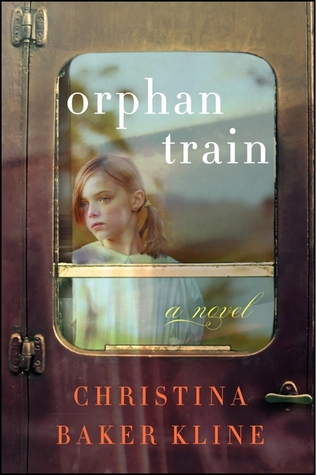They call this an orphan train, children, and you are lucky to be on it. You are leaving behind an evil place, full of ignorance, poverty, and vice, for the nobility of country life. While you are on this train you will follow some simple rules…And if your behavior proves to be a problem, if you cannot adhere to these simple rules of decency, you will be sent straight back to where you came from and discharged on the streets, left to fend for yourselves.The most interesting part of Orphan Train is the actual historical event that inspired it: Between 1853 and 1929, charitable organisations shipped over 200,000 orphaned and abandoned children from crowded east coast American cities to rural areas of the Midwest. As written by Christina Baker Kline, large boys who could provide free farm labour were the most sought after at the adoption events (that looked like livestock auctions, with a farmer squeezing biceps and inspecting teeth before pointing out the child he'd be willing to take home with him), infants were the next to go, and girls often had to make a stop in a few different cities before someone could find a use for them. According to Wikipedia : The program was not without criticism. In its early days, some abolitionists viewed it as a form of slavery, while some pro-slavery advocates saw it as part of the abolitionist movement, since the labor provided by the children helped to make slaves unnecessary. But it was better than being left on the mean streets of NYC, right?
I'm sure this inspiration could have made for a fascinating book, but unfortunately, Orphan Train ain't it. This book is told from two points of view: Niamh/Dorothy/Vivian (her name changes according to the whim of adoptive parents) is a recent immigrant from Ireland, who when orphaned in 1929, is sent west on an orphan train. She tells her story from her own perspective (or at least the first twenty years of her story since "nothing happened" after that), but we also see her in the present day (at ninety-one-years old) through her interactions with the second main character, Molly; a seventeen-year-old who is about to "age out" from the foster care system. When Molly attempted to steal a copy of Jane Eyre from the library, she was sentenced to fifty hours of community service in order to avoid going to "juvie". Through a connection with her boyfriend, Molly is assigned to complete her hours by helping Vivian clean out her attic. As they encounter every object Vivian has ever owned in her life and the old woman is inspired to tell the stories behind them (hence the chapters on her formative years), the two women realise that they have pretty much everything in common and this connection heals two lonely hearts. The end.
Orphan Train has the depth and heft of a YA novel, without marketing itself as such. Characters are one dimensional (for example, we know Molly's current foster mother is evil because she listens to conservative talk radio, belongs to a fundamentalist Christian church, and has a "Guns don't kill people -- abortion clinics do" bumper sticker on her car and we know that Molly is going through a healthy transformation when she abruptly gives up her Goth look: She feels like a circus clown who wakes up one morning and no longer wants to glue on the red rubber nose), situations are unbelievable, and repeatedly, I got the sense that the author was using words that she didn't really understand (which, unfortunately, I wasn't keeping track of because I wasn't planning to dislike this book). My biggest complaint would be about the unnecessary parallels between Molly and Vivian's lives, which are so literal and so obvious that I found them distracting: they were both "orphaned" at the exact same age -- with a dead alcoholic father and an institutionalised mother who never took good care of her when she was alive anyway; they were both passed from home to home; both wear necklaces with totemic charms that link them to their ancestry; they have nearly identical sexy scenes with their boyfriends; they're both organisational/neat freak types (although, if this were as true as Molly says it is, would she also whine that her foster mother is always nagging her to clean up after herself?); and in my least favourite parallel, they both come to the same realisation that they needed to live through horrifying events in their young lives in order to end up in the exact right place where they found a moment of happiness. The only good thing was what didn't happen: I was so certain that Molly was going to somehow end up being related to Vivian -- what with all these parallels -- and the more Molly looked into Vivian's family history, the more certain I was that would be the case.
Orphan Train is very highly rated, but as I've always said, popular doesn't mean good. I know no one to whom I would recommend this book.

